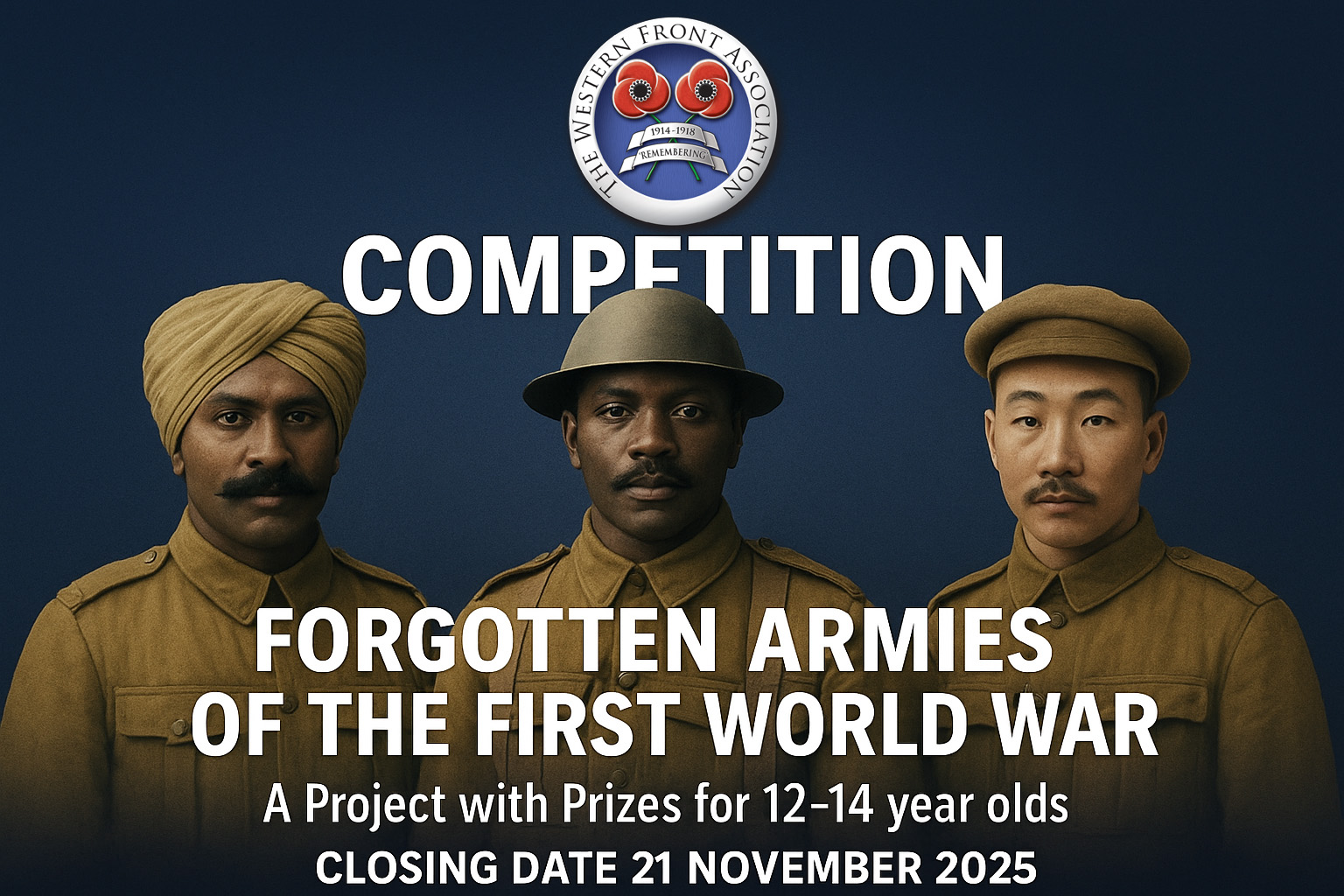2025-2026 Autumn Project with Prizes for 12-14 year olds: The World’s War and Forgotten Armies
- Home
- Latest News
- 2025
- June 2025
- 2025-2026 Autumn Project with Prizes for 12-14 year olds: The World’s War and Forgotten Armies

On 11 November, or the Sunday nearest to that date, in towns and villages throughout the United Kingdom, people pause to remember those who have given their lives in conflict. It is a tradition that began after the First World War. The countries at war signed the Armistice – an agreement to stop fighting – at the 11th hour of the 11th day of the 11th month and we remember those killed in that war and other conflicts since in a two-minute silence at that time each year.
If you have ever taken part in that two-minute silence or been asked to reflect on what it means during an assembly, perhaps you have imagined the people involved in the First World War. What pictures come to mind? What do they look like? How old are they? Where do they come from?
A lot of people will imagine them to be young white European men who were fighting in trenches in France and Belgium. In fact, the war was being fought in Turkey, the middle east and parts of Africa too and, because Britain and France had empires, people involved in the conflict included those from many other countries across the whole world: from India and Africa, and from China for example. Indigenous people came from Canada, Australian and New Zealand as well as people of European descent. It really was a World War.
Some were involved as soldiers but a war requires people doing many other jobs too. Many were recruited as labourers, for example, and what they were asked to do was often as dangerous going into battle. For a long time, the contribution made by people from other parts of the globe was not very well known or well researched and so these have sometimes been called the “Forgotten Armies”. That has changed a little in recent years and for this year’s competition we would like you to be part of that change.
About the Competition
For this year’s competition, we would like you to:
- Write a speech or a poem that could be read at a Remembrance Assembly or other event to honour the contribution made by one of these “Forgotten Armies”. You can focus on the whole group or on one person
Or:
- Design a war memorial or a wreath dedicated to one of these groups.
Make sure you have included your full name (first and family name), age and name of your school on the front of your entry.
Information for Teachers
The Oak National Academy has free resources that will support students undertaking this project. It should be possible to dip in and out and it is not necessary to explore the contribution of every group.
Forgotten Armies
The Empire
Their Schemes of Work are based on David Olusoga’s book The World’s War, Forgotten Soldiers of Empire. His documentary based on the book is available on BBC iplayer.
What Happens Next?
Entries should be submitted by teachers to education@westernfrontassociation.com.
Student’s FULL names MUST be clearly written on the FRONT of their entries. These will only be seen by the judges and we will not publish any names of students or entries without prior permission from their school. Entries without this information will not be considered.
We realise that scanning large numbers of entries can be quite a chore for organizing teachers. Some schools in the past have held their own internal competitions and submitted only the winners’ work. Scanning 10-20 entries is probably less daunting than submitting 200!
Closing date: 21 November 2025
The creators of the best entries will receive a book and certificate, runners up will receive certificates.
Winners’ schools will be invited to enter a ballot for an invitation to the Western Front Association Service of Remembrance on 11 November 2026.
Good luck!





